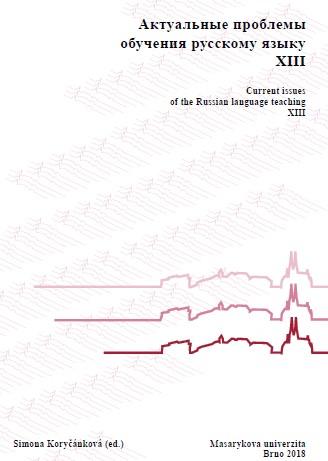ПУШКИНИЗМЫ В ПОЗИЦИИ ОЦЕНОЧНЫХ ЕДИНИЦ
PUSHKINISMS IN THE POSITION OF EVALUATIVE UNITES
Author(s): Jozef Sipko
Subject(s): Russian Literature, Theory of Literature
Published by: Masarykova univerzita nakladatelství
Keywords: Pushkinisms; means; base unit; press;
Summary/Abstract: The author concentrates his attention on Pushkinisms, which function nowadays as linguistic units, that serve as a means of evaluation of a large amount of events today. This confirms the well-known quote of A. Grigoryev: "Pushkin is our all". Pushkinisms get reevaluated in any communicational situation in the form of the most authoritative assertions. The above-mentioned attitude of the nation towards A.S. Pushkin and his literary heritage is based on the specifics of Russian culture and namely the literature-centrism and deep esteem for the literature itself. These characteristics of Russian culture can be traced centuries into the past and often find their embodiment in Russian proverbs. This role of Russian literature in Russian spiritual life shows itself in the natural trust of the Russians towards Russian writers, the fact proof of which can be found in the daily press, where evaluation of individual events, people as well as other facts can be found. In this article the author shows the literature centrism and Pushkin centrism of Russian culture based on the analyses of concrete texts that deal with a wide range of present-day events. Special attention is focused on the presentday political context dominated by the theme of the confrontation of Russia and the West. We have come to conclusion that Pushkinisms can in fact be used to evaluate all and any affairs and occurrences today be they a matter of everyday life, as well as of social, culture or political character. The article concentrates on political as well as polemic context where the Pushkinisms take up new specific evaluative power. The above-mentioned ethno-cultural position of Pushkinisms gets more objective in relation to associative terms where many base Russian lexemes tend to be directly connected with the work of the great Russian writer.
Book: Актуальные проблемы обучения русскому языку XIII
- Page Range: 577-582
- Page Count: 6
- Publication Year: 2018
- Language: Russian
- Content File-PDF

